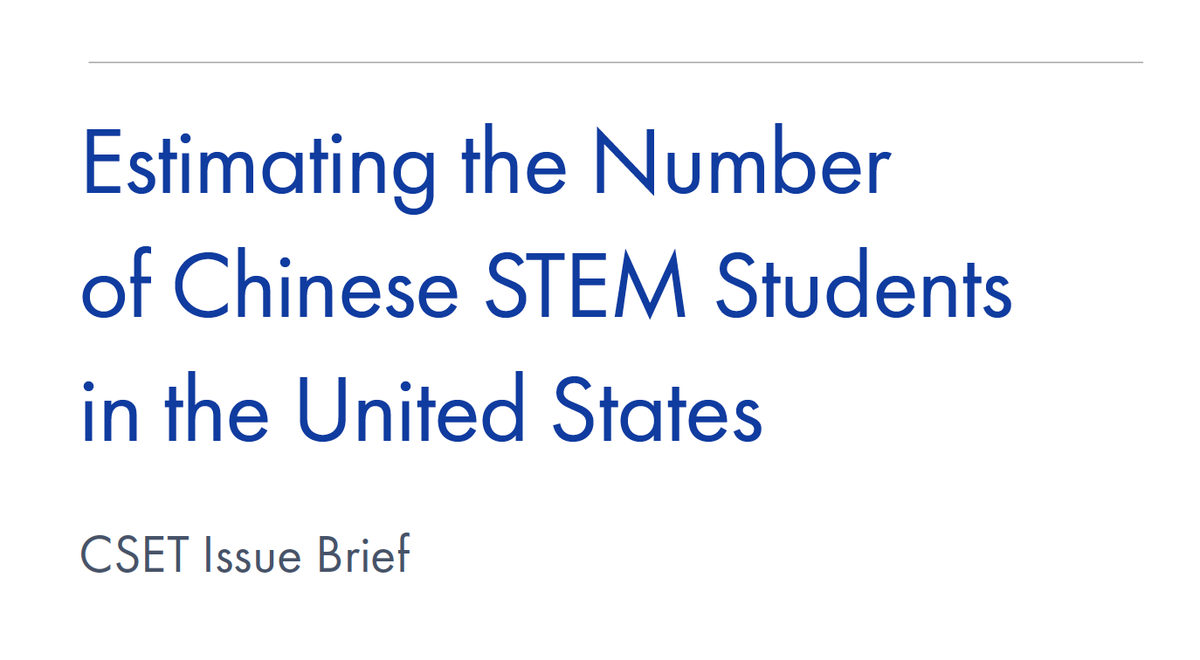
Co-Founder @HorizonIPS — building pathways into public service // Fellow @CSIS & Alum @CSETGeorgetown — analyzing 🇺🇸-🇨🇳 talent competition and immigration
How to get URL link on X (Twitter) App



 We asked two basic questions:
We asked two basic questions: 
 First, current US immigration policies are directly at odds with the push to strengthen semiconductor supply chains. You can’t expect firms to move R&D and high-end production to the US while slashing their access to talent, as we argued in WSJ: [2/x]
First, current US immigration policies are directly at odds with the push to strengthen semiconductor supply chains. You can’t expect firms to move R&D and high-end production to the US while slashing their access to talent, as we argued in WSJ: [2/x]

https://twitter.com/atrupar/status/1254428558224736257First, let’s talk CCP intentions. There can be little debate about it wanting more returnees. But the CCP does not have absolute control. Its officials have long complained that “the number of top talents lost in China ranks first in the world.” [2/x]
https://twitter.com/shadihamid/status/1254770822654246915

 First, we found these questions are actually pretty hard to answer. We did ~9 months of data collection, gathering 2,000 comprehensive career histories of recent US AI PhD grads (& more in the pipeline). We also analyzed four other sources w/ relevant data.
First, we found these questions are actually pretty hard to answer. We did ~9 months of data collection, gathering 2,000 comprehensive career histories of recent US AI PhD grads (& more in the pipeline). We also analyzed four other sources w/ relevant data. 